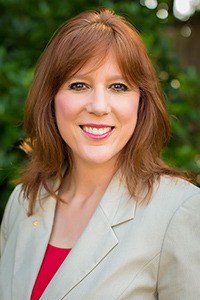Spirited. Engaging. Tight.
It’s what to expect in an election year as candidates pursue big, powerful seats in office.
Secretary of State Kim Wyman knows as much.
The state’s chief elections officer and her staff have been busy behind the scenes, preparing the stage for voters in what promises to be an interesting and contentious 2016 campaign, nationally and locally.
Historically, turnout is high when an open-seat U.S. presidency is up for grabs. In Washington, a probable two-horse race between the Democratic incumbent, Gov. Jay Inslee, and Republican challenger Bill Bryant, should stoke a strong statewide vote.
“We’re going to see a huge year across the board,” said Wyman, on a visit to the Reporter office in Kent last week. “We expect a record-breaking turnout, which is exciting.”
But Wyman, a Republican who will be busy seeking reelection next year, is reluctant to endorse anyone right now.
For voters, the Republican race remains too cluttered, the Democratic race too tentative.
“I’ve got a couple of front-runners (in mind), but it’s still too early,” Wyman said.
“Keep in mind, people, we’re four or five months out from (the) Iowa (Caucuses). It’s still early. … A lot’s going to happen between now and say, June.”
Between now and then, Wyman’s office will work to get the vote out, with the emphasis on reaching the underserved masses, namely military personnel overseas, the minority language communities and those with special needs.
It’s a challenging process, but one Wyman’s office has improved in recent elections.
One thing that won’t change next year, however, is the positioning of the state primary.
The primary – funded in the new state budget with bipartisan support – is scheduled for May 24 as an all-mail election. Ballots will go out nearly three weeks ahead of time.
Democratic Party representatives, announcing their state committee will stick with the caucus/convention process to allocate their delegates, blocked Wyman’s attempt to move the primary to an earlier date in March.
Democrats saw no reason to move the date earlier on the election calendar, Wyman said. They remain steadfast, she said, deciding they will not use votes cast in the presidential primary for their nominating process. Their caucuses are March 26.
But Wyman is pleased with the state Republicans’ recent decision to use the presidential primary to allocate all their delegates to the Republican National Convention in Cleveland next July.
Republicans will also hold precinct caucuses on Feb. 20, and county conventions in March and April.
“This is a big win for the voters of Washington,” Wyman insisted. “For months, I have been urging both parties to use the presidential primary results.”
The presidential primary was created as a citizen initiative to the Legislature back in 1989.
“The old caucus system run by the parties isn’t as convenient or effective in engaging voters as a statewide election for four million registered voters,” Wyman said. “Our main goal should be giving a voice to the broadest possible swath of the electorate.”
As Wyman sees it, voters win with the more inclusive primary election. From her perspective, the election is meaningful, and much more tangible than a poll or survey.
“This isn’t about the parties; this is about voters and giving them a voice to vote in a way that they are used to in an election,” she said. “It does mean something.
“What the parties do with the results is a secondary thing. What matters is that people have a voice.”
‘Beauty contest’
Skeptics claim the primary – which many deride as an $11.5 million beauty contest – won’t have much affect on how voters here choose a presidential nominee.
Wyman urged lawmakers to require the parties to — at least partially — consider results before funding the election, but her request was ignored. Instead, lawmakers funded the election with no mandate that it actually count for something — anything.
But the May primary stuck.
Wyman is optimistic the primary will be relevant late into the campaign season. Combined with late primaries in California, Oregon and Washington, there may be a greater probability of candidates visiting our state and talking to voters, Wyman said.
“We could have a couple of candidates on both sides still in play by May,” she said. “I know we have a history by May that it’s already decided. … I don’t think you can make that assumption about ’16. I could be wrong.”


